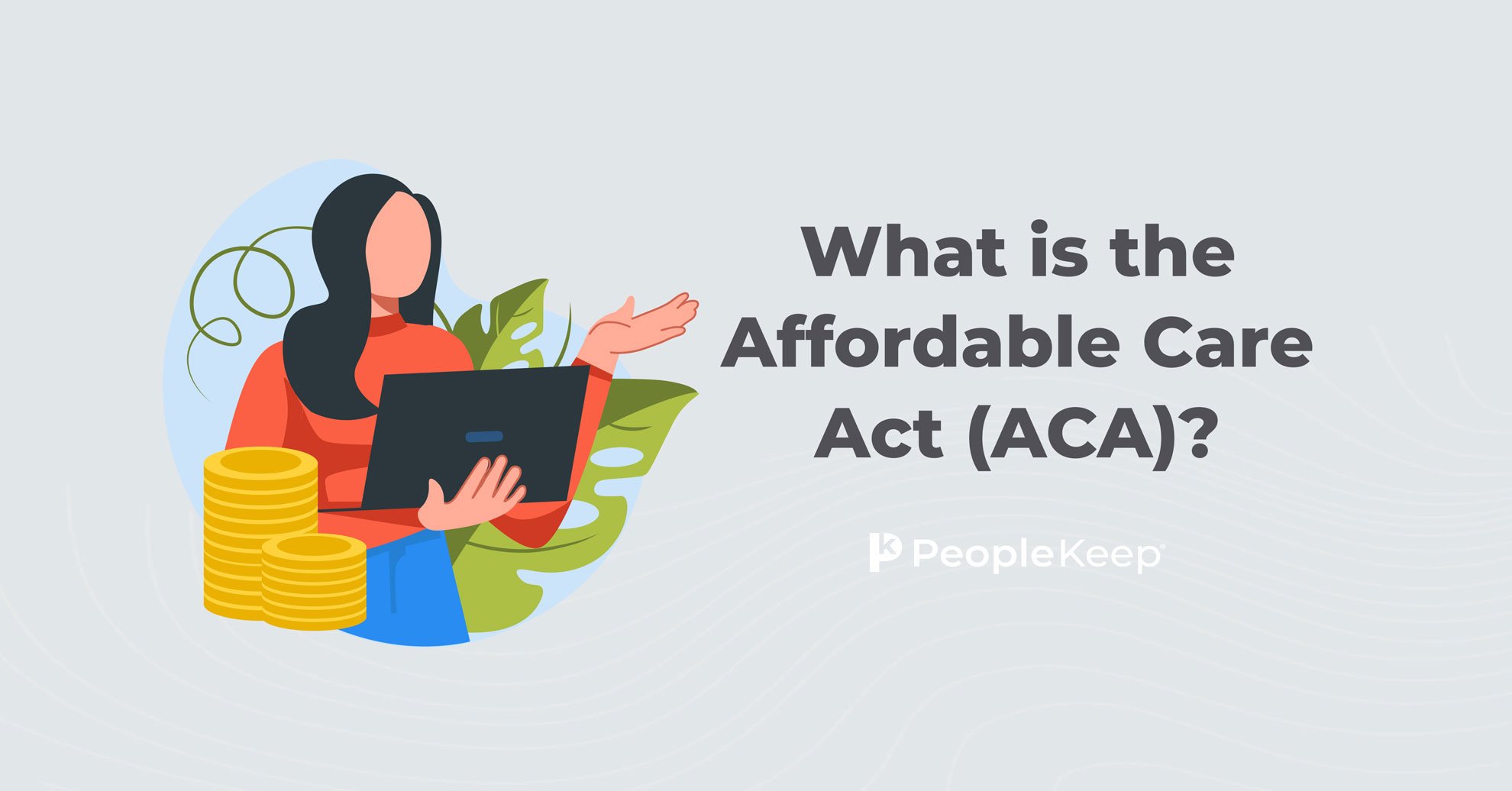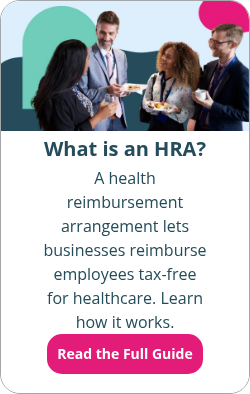What is a short-term health insurance plan?
By Elizabeth Walker on May 5, 2025 at 9:00 AM
When you’re outside the Open Enrollment Period, you have few opportunities to buy health coverage. You can enroll in an individual plan mid-year if you have a qualifying life event or are eligible for a federal health insurance program, like Medicare or Medicaid. However, these situations may not apply to everyone.
A short-term health insurance plan provides medical coverage outside of Open Enrollment. These plans are temporary and available year-round from private exchanges. While they’re typically inexpensive, they have many limitations that make them different from major medical plans.
This article will explain everything you need to know about short-term health insurance plans to decide if one is right for you and your family.
In this blog post, you’ll learn:
- What short-term health insurance is, and how it differs from ACA-compliant plans.
- What short-term health plans do and don’t cover for enrollees.
- Who’s best suited for a short-term health plan, how to enroll, and recent federal rule changes that impact plan duration.
What is a short-term health insurance plan?
Short-term health plans, also known as gap coverage or temporary health insurance, provide individuals with temporary medical insurance if they don’t have permanent health coverage outside Open Enrollment. These plans typically offer limited health coverage.
All public and private exchange health plans must comply with Affordable Care Act (ACA) regulations, such as providing minimum essential coverage (MEC). But, temporary health plans don’t have to follow the ACA. That’s because short-term medical plans don’t meet the ACA definition of individual health insurance.
Short-term plans differ from ACA plans. For example, they offer limited coverage. You may not be eligible to participate if you have a pre-existing condition. Insurers can also charge different premiums based on health status, gender, or other potential risk factors. This practice is known as medical underwriting.
Because they offer fewer protections than group or individual health insurance plans, 14 states and the District of Columbia prohibit the sale of short-term health policies1.
The following states ban short-term health plans:
- California
- Colorado
- Connecticut
- Hawaii
- Maine
- Massachusetts
- Minnesota
- New Hampshire
- New Jersey
- New Mexico
- New York
- Rhode Island
- Vermont
- Washington
What does short-term health insurance cover?
Covered healthcare services under short-term policies depend on plan level, location, and insurer. But there are a few medical services that most short-term medical plans cover.
Most short-term health insurance plans cover:
- Emergency healthcare services
- Urgent care
- Certain prescription medications
- Routine doctor visits
- Medical tests
- Preventive care
Because they’re not ACA-compliant plans, the federal government doesn’t require them to cover the following out-of-pocket costs:
- Pre-existing conditions
- Maternity care
- Mental health services
- Other essential benefits
If you need your health plan to cover these medical services, you may need to pay for them out of pocket.
Insurance companies must provide individuals with a disclaimer explaining the plan’s covered healthcare services and any limitations. So, review the plan details carefully before you enroll.
How much does a short-term health insurance plan cost?
Short-term medical insurance plans are generally a more affordable coverage option than comprehensive medical plans. In many cases, the monthly premium can be less than $2003.
Actual prices vary based on:
- Location
- Age
- Gender
- Medical history
- Insurance carrier
- Other factors
You also must consider other out-of-pocket costs. Short-term plans tend to have high deductibles, copayments, and coinsurance rates. Because they’re not ACA-compliant plans, you can’t use tax subsidies to reduce your premium. Lastly, temporary insurance plans typically have a set benefit cap and may come with a one-time enrollment fee.
What is the final rule for short-term medical plans?
Short-term policy durations previously ranged from a few months to a year. But in March 2024, the Biden Administration set nationwide limits on short-term health policies. All short-term health insurance plans issued on or after September 1, 2024, have a maximum policy duration of three months. The plan’s total duration with renewals can be no more than four months instead of the previous maximum of three years2.
Plans must include a comprehensive disclosure notice on the policy’s first page. Any marketing and enrollment materials must highlight the differences between short-term and ACA-compliant plans. This change aims to prevent consumers from accidentally buying temporary coverage when shopping for an ACA-compliant major medical plan.
However, the rules on short-term health insurance are subject to change. President Trump could reverse the Biden Administration’s rules, as the first Trump Administration extended these plans to a maximum of three years in 2018.
What are the pros of short-term health insurance plans?
Short-term health plans may not work for everyone because they don’t provide comprehensive health coverage. However, a few factors may be appealing to some people.
The following are the advantages of short-term health insurance coverage:
- They’re a good way for individuals experiencing gaps in coverage to have health insurance if they need emergency services.
- They have low monthly premiums.
- You can enroll in a plan outside of open enrollment.
- Coverage typically becomes active quickly.
- You can cancel at any time without penalties.
- It can provide coverage if you need health insurance for a specific reason, like joining a sports league.
- Depending on your short-term health insurer, you can customize plan design options.
What are the cons of short-term health insurance plans?
While they have their advantages, temporary insurance plans aren’t without drawbacks. Before enrolling, you should consider whether these plans will meet your needs.
The following are potential downsides of temporary health insurance plans:
- The federal government restricts the plan duration to a maximum of three months.
- They don't comply with the ACA, so they don’t have to cover the ten essential health benefits.
- You must answer various medical questions when you submit your application.
- If you have certain pre-existing medical conditions, you may not be able to get coverage.
- They have higher deductibles, copays, and coinsurance than other medical plans.
- Certain states and locations prohibit them.
- In states that allow them, insurers may not carry short-term medical plans.
- This type of plan may have a waiting period before you can start receiving benefits.
- You could still have gaps in coverage if your plan ends outside of open enrollment.
- Short-term policies have limited plan benefits. So, you may receive a surprise medical bill for whatever additional costs your insurer doesn’t pay.
Who is best suited for a short-term health insurance plan?
Now that you understand the pros and cons, you may wonder if short-term coverage suits you.
A short-term plan may be beneficial for you if you experience any of the following situations:
- You had employer-sponsored health insurance but lost your job.
- You can enroll in COBRA health coverage if you lose your job. But if you don’t want a COBRA plan, you can enroll in a Marketplace or short-term plan instead.
- You missed the annual Open Enrollment Period to buy comprehensive coverage.
- If you have a qualifying life event, you can trigger a special enrollment period and enroll in a traditional health plan outside of open enrollment. Otherwise, short-term coverage may be your only current insurance option.
- You’ve retired from your job and will be eligible for Medicare shortly.
- You’re a newly hired employee with a waiting period before you can use your employer-sponsored health insurance plan.
- You turned 26 and can’t remain on your parents’ health insurance plan.
- This also creates a special enrollment period for enrolling in a Marketplace plan. You may also be eligible to enroll in COBRA through your parents’ health plan.
- You’re generally healthy and don’t need many medical services or require prescription drug coverage.
- Because of the limited duration of these plans, enrolling in a bronze plan is likely a better health insurance option. You can also see if you qualify for a catastrophic health plan.
- You can’t afford a traditional health insurance plan on a public or private exchange.
If any of the above situations apply, you may be a good fit for a temporary health insurance plan. However, you may only qualify if you meet specific circumstances.
You may not be eligible for short-term coverage if:
- You’re pregnant.
- You’re a man weighing more than 300 pounds or a woman weighing more than 250 pounds.
- You’ve previously been diagnosed (or received medical treatments) for HIV or AIDS.
- You have coverage through another health insurance policy.
- You’re eligible for Medicaid.
- You aren’t a U.S. citizen or legal resident.
- You have certain pre-existing health conditions.
How do I enroll in a short-term health insurance plan?
When applying for short-term medical insurance, you’ll first fill out a health questionnaire detailing your medical history. You’ll also have to list any pre-existing conditions you’ve had within the past five years. Based on your responses, your insurer may disqualify you from getting coverage.
If you qualify, you can enroll in short-term coverage from:
- An insurance carrier
- A health insurance agent
- A licensed health insurance broker
Remember, not all states and companies offer these plans, and you can’t buy them through the Health Insurance Marketplace or a state-based exchange.
You can enroll in a short-term health insurance policy at any point throughout the year. Your policy may become active the day after the insurer receives your application, depending on your health conditions and the medical underwriting process. You can also choose your preferred effective date.
If your short-term plan ends mid-year, you won’t be eligible for a special enrollment period to enroll in a traditional health plan. This is because short-term insurance plans don’t meet MEC, so losing coverage isn’t a qualifying life event.
Conclusion
Short-term medical plans are a temporary solution for people without health insurance to avoid a coverage gap. But they’re unavailable in many states and don’t have to follow ACA regulations. This can be a problem if you have pre-existing conditions and need a certain amount of medical care. You also can’t subsidize your health plan with premium tax credits.
If you’re looking for comprehensive coverage, you have options. Your best options are to participate in employer-sponsored insurance or enroll in an individual health plan on a public or private exchange during open enrollment. This way, you’ll have ACA protections and the best coverage possible for you and your family.
This blog article was originally published on October 11, 2023. It was last updated on May 5, 2025.
1. Finalized federal rules regarding short-term health plans
Check out more resources
See these related articles

What happens if you miss Open Enrollment for individual health insurance?
Missed Open Enrollment for health insurance? Find out what options you have, including qualifying life events and special enrollment periods (SEPs).

Why do health insurance premiums increase?
Learn why health insurance premiums increase. Discover the factors behind rising costs and what to consider if your health insurance went up.

What is the Affordable Care Act (ACA)?
The Affordable Care Act (ACA) expanded access to health insurance. Learn what the ACA is, what it requires, and how it impacts individuals and employers.



